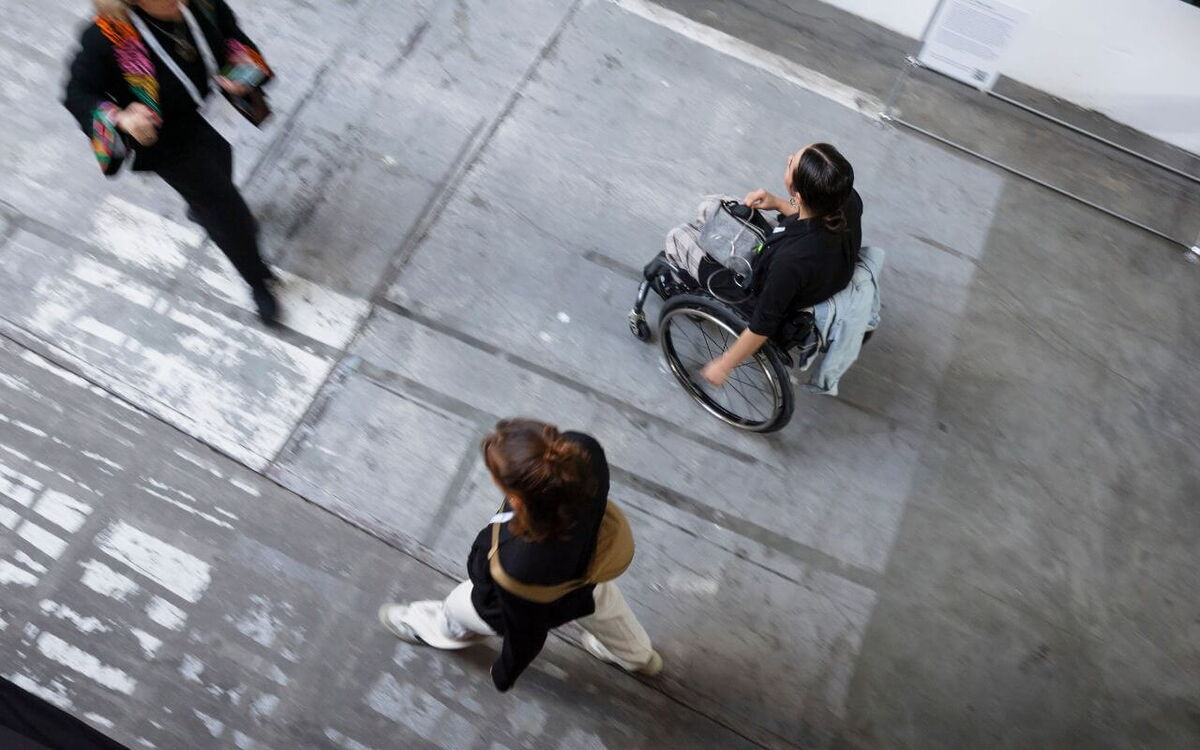Newsletter
Don't miss a thing!
We regularly provide you with the most important news, articles, topics, projects and ideas for One World – No Hunger.
Newsletter
Don't miss a thing!
We regularly provide you with the most important news, articles, topics, projects and ideas for One World – No Hunger.
Please also refer to our data protection declaration.
Pratima Gurung, Chair of the National Indigenous Disabled Women Association Nepal (NIDWAN) and General Secretary for Indigenous Persons with Disabilities Global Network (IPWDGN, has been advocating for the rights of Indigenous women with disabilities for years – in Nepal, across Asia, and globally. In this interview, she discusses progress, ongoing challenges, and why inclusion is a global issue that concerns us all. Her message: political spaces must be inclusive and intersectional.

Why is it important to create inclusive political spaces for persons with disabilities?
Pratima Gurung: I represent indigenous persons with disabilities in Nepal. It is essential to create spaces that recognize persons with disabilities not as objects, but as active subjects. The UN Convention on the Rights of Persons with Disabilities provides a clear normative framework that protects, promotes, and ensures the rights of persons with disabilities around the world – who make up approximately 16% of the global population. However, this legally binding document does not include specific mechanisms for the direct involvement of other key stakeholders.
Therefore, it is crucial to shape political processes that include not only states and persons with disabilities themselves, but also other actors such as the private sector, academia, institutions, civil society organizations, and various direct and indirect networks.
You demand a holistic approach.
The fundamental objective is to mainstream disability inclusion within society, because disability is a social issue and therefore, everyone’s issue. This work is not limited to developed countries; it concerns both developed and developing nations alike. It is essential to come together to monitor and evaluate what has been implemented at the grassroots level and what actions have been taken for persons with disabilities, including those who are underrepresented. Persons with disabilities are not a homogeneous group. Disability intersects with sex, caste, ethnicity, religion, region, and many other diverse gender identities. We are bringing these global perspectives together to shape the agenda for meaningful and inclusive disability policies.
When it comes into concrete implementation of human rights for people with disabilities: Why do we see so much failure?
I would say it's not a failure, because all the member states that have ratified the Convention on the Rights of Persons with Disabilities have a legal mandate. I also recognize that each and every member state has its own priorities. They are also aware of the available resources and the level of political commitment within their governments. If you look at the overall political commitment, I would say there has been progress – especially when you compare the situation 20 years ago to where we are now.
What happened?
We now see that persons with disabilities have become advocates. They have become leaders with the aspiration of leaving no one behind. There is a growing awareness, and we can observe gradual progress. Member states are also showing commitment, they are amplifying their efforts and moving forward in a slow but steady way. However, more needs to be done. We must intervene, hold our governments accountable, and continue our advocacy and campaigning to ensure that all governments and stakeholders take responsibility for the mandates entrusted to them.
If you were in power, what should be done first?
If I were in power, I would ensure the full inclusion of all persons with disabilities so that they could live a dignified life equal to that of others and that inclusion would begin at home.
You already mentioned that you see progress. Where do you see us in ten years?
In ten years, I believe that most organizations led by or representing persons with disabilities will be more empowered. They will be able to claim, assert, and fully exercise their rights. However, I also foresee a growing trend: due to global crises – such as the climate crisis and other ongoing challenges affecting our daily lives and health – the number of people acquiring different types of disabilities will significantly increase. As a result, disability will become an even more central global agenda for all of us.